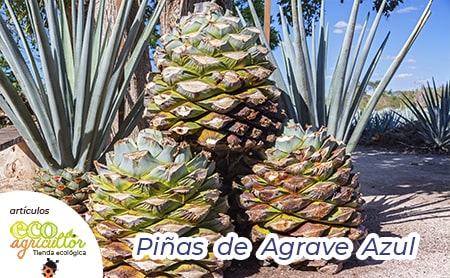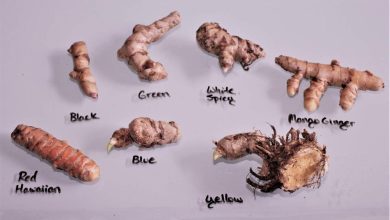Agave syrup: What do you know about the properties of this sweetener?

Surely for a while you have heard many benefits about agave syrup and that you even use it in sweet cooking recipes as a substitute for sugar.
In this post we will talk about the benefits of agave syrup and the precautions to take with this sweetener.
What is agave syrup?
Agave syrup is known as a sweetener obtained from a concentration of mead or maguey sap , the common name by which the species of the agave genus are known – especially in Mexico.
Agaves represent a group of succulent plants native to the arid zones of tropical and subtropical America, from the southern United States to Venezuela and Colombia, although it is in Mexico where the greatest diversity of species is found.
The species Agave tequiliana Weber var. Azul is a crop of great economic importance in Mexico, since it is used to make tequila and, from the same species, blue agave syrup and other products made from mead are also obtained.
Other species used for the production of mead are the Agave teometil Zucc., Agave weberi Cels, Agave altísima Jacobi, Agave compliata Trel, Agave gracillispina Englem, Agave malliflua Trel, Agave quitifera Trel, Agave crassispina Agawisaga Trel, Agave karisagavens map Trel, Agave karisawirens Trel and Agave Salmiana Otto ex Salm.
These plants are characterized by storing a significant amount of fructooligosaccharides , which are polysaccharides made up of between 10 and 20 fructose units that, due to their structure, are not digested by the enzymes of the digestive tract and pass into the colon, where they are fully fermented by beneficial intestinal microflora.
According to Mexican regulations, the syrup is produced by hydrolysis of its fructans and must not contain food additives, starches, molasses, glucose, dextrins, fructose or other sugars of other origin.
Composition of agave syrup
As indicated at the beginning, agave syrup is obtained from agave mead, which is a liquid that is produced in adult plants before flowering, accumulating in the lower part of the plant.
Agave mead is rich in simple carbohydrates such as inulin , sucrose, and fructose, as well as containing amino acids, calcium, vitamin C, Niacin, and phosphorus.
Agave has a high content of fructooligosaccharides (FOS), as well as vitamins A, B, B2 and C, iron, phosphorus and proteins, however, in agave syrup the contents vary according to the refining process, which can give result in a fructose content greater than 70%.

Health benefits of agave syrup
Agave mead is considered a stimulant of the digestive system that improves the ability to eliminate fats and toxins and stimulates the growth of the intestinal microbiota ( prebiotic ).
It has fewer calories than sugar , about 300 from agave compared to almost 400 from sugar, so we can use it to replace and substitute sugar and reduce harmful bacteria, favoring the immune system.
As mentioned before, agaves contain fructooligosaccharides (FOS) which, when hydrolyzed, produce inulin, fructose and glucose. Due to the fermentation process, these components affect the intestinal epithelium, favoring the development of the mucosa and increasing resistance to intestinal diseases .
The fructans present in the agave are fructose linked together in long branched chains that do not affect the level of sugar in the blood ( glycemia ). For its part, inulin stimulates the growth of bifid bacteria, with a proven role in weight control and calcium absorption .
These natural sugars present in agave can act as dietary fiber and stimulate insulin production without raising blood glucose levels.
According to some studies, the sugars present in agave also contribute to lower cholesterol and triglyceride levels , increase calcium and magnesium absorption , and facilitate intestinal motility.
The fructans in agave have health benefits such as:
- The prevention of osteoporosis, helping to improve the absorption of minerals, especially calcium.
- Relieving constipation by stimulating the formation of stools and reducing the pH of the colon.
- The improvement in the circulation of the blood and the detoxification of the organism.
- The decrease in glucose levels in patients with type II diabetes.
- Diets to lose weight.
However, in agave syrup, the fructans are broken down and filtered, so it has not been proven to have the same effect as agave mead.
As for the benefits of agave syrup, the following stand out:
- Bring out the natural flavors of foods by using much less than any other sweetener.
- It does not crystallize at low temperatures, it can be stored for two years at temperatures of 5 ° C to 35 ° C.
- It is a natural product soluble in food and beverages.
- Maintains freshness and moisture for longer, preventing the growth of microorganisms.
How to use
Because agave syrup, having 70% fructose, sweetens less than other sweeteners or sugars but must also be used in lower concentrations, it is used mainly in industrial processes such as:
- Dairy products, such as emulsifiers and substitutes for sugars and fats.
- Frozen products, providing texture and substituting sugars and fats.
- Spreads, giving stability to the emulsion, texture and replacing fats.
- Baked products, reducing the temperature and the time for cooking.
- Breakfast cereals, providing crunchiness.
- Chocolates and other sweets, as a substitute for sugars and moisturizer.
Agave use precautions
To make agave syrup, agave mead goes through a chemical process that breaks down the fructans into individual fructans and that, after high refining or filtering, can reach 100% fructose in the product.
Excess fructose can overload the liver and increase triglycerides in the blood, as well as build up and cause diseases such as fatty liver.
Therefore, it should be used in moderation and is contraindicated in people with a high uric acid index.
,
Consulted bibliography
- “Encapsulation of agave syrup”, Sánchez Quezada Va., Concha Herrera Va., Prieto Contreras L Fa., Carranza Téllez Ja. Research and Development in Food Science and Technology. Sánchez et al. Vol.1 N1. 2016
- «Comparative analysis between blue agave syrup ( Agave tequilana Weber var. Azul) and other natural syrups», Erika Mellado-Mojica, Mercedes Gpe. López-Pérez. Agrociencia Vol. 47 N3. 2013
- «Evaluation of two processes to obtain honey from Agave atrovirens «, Amalia Vásquez Torres. Autonomous Agrarian University «Antonio Narro». 2009
- «Supply chain: Agave Inulin», Lic. Gilma Ibañez Vázquez, Dra. Martiza Álvarez Herrera, Ing. Francisco Javier Doria Mendoza. Autonomous University of Tamaulipas. 2015.


![Photo of Deciduous Forest: [Concept, Characteristics, Fauna and Flora]](https://www.complete-gardening.com/wp-content/uploads/2022/08/deciduous-forest-concept-characteristics-fauna-and-flora-390x220.jpg)

